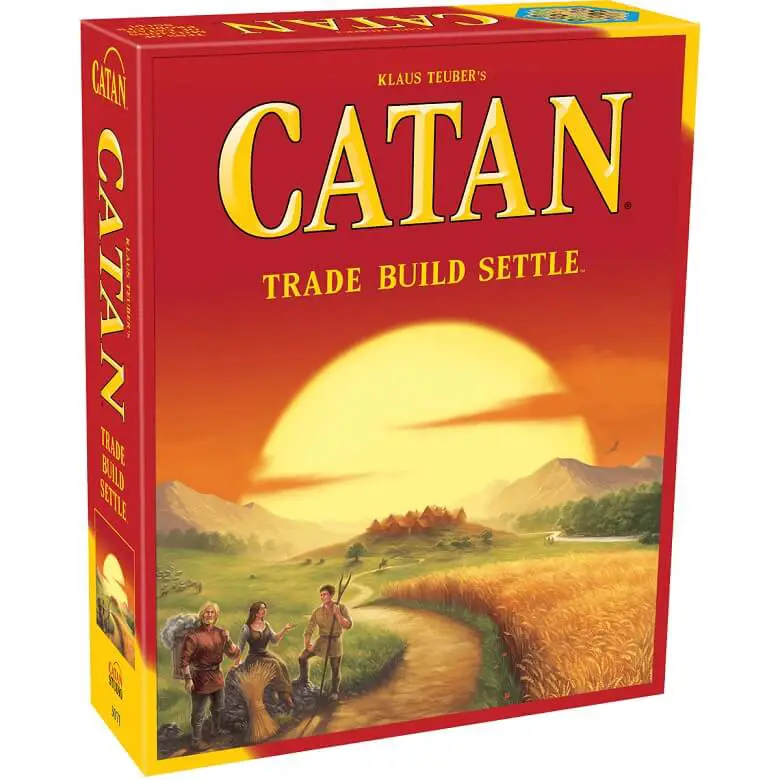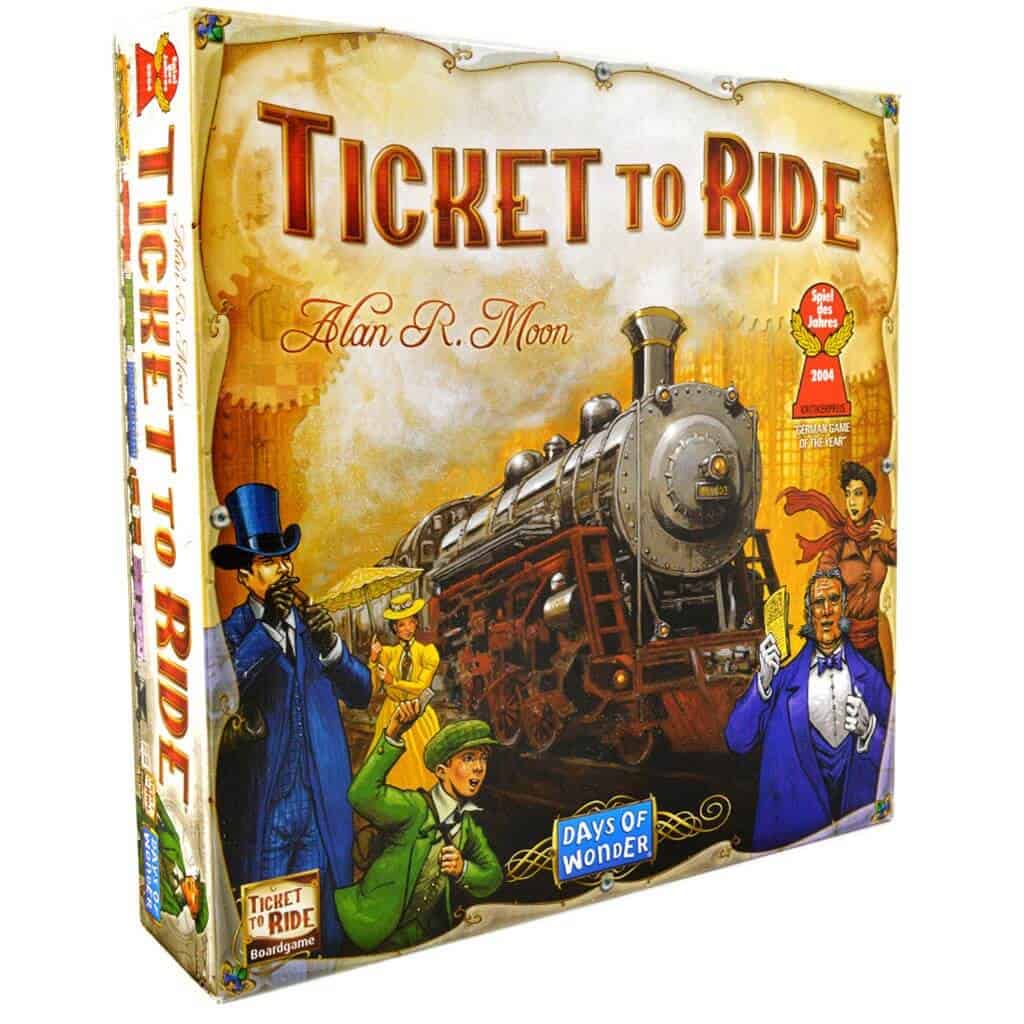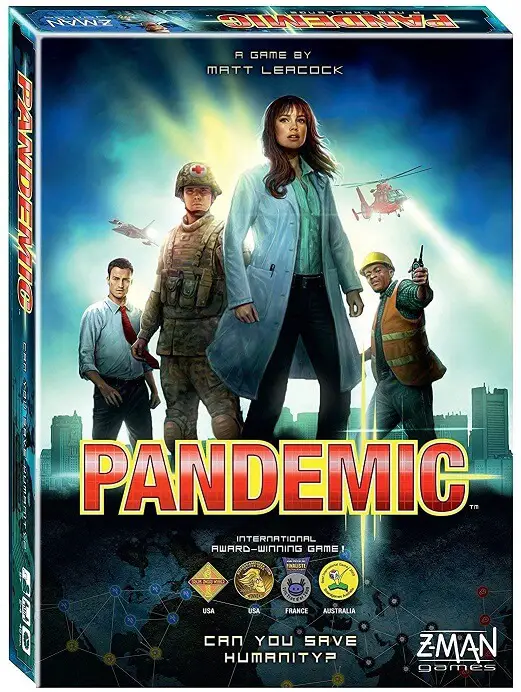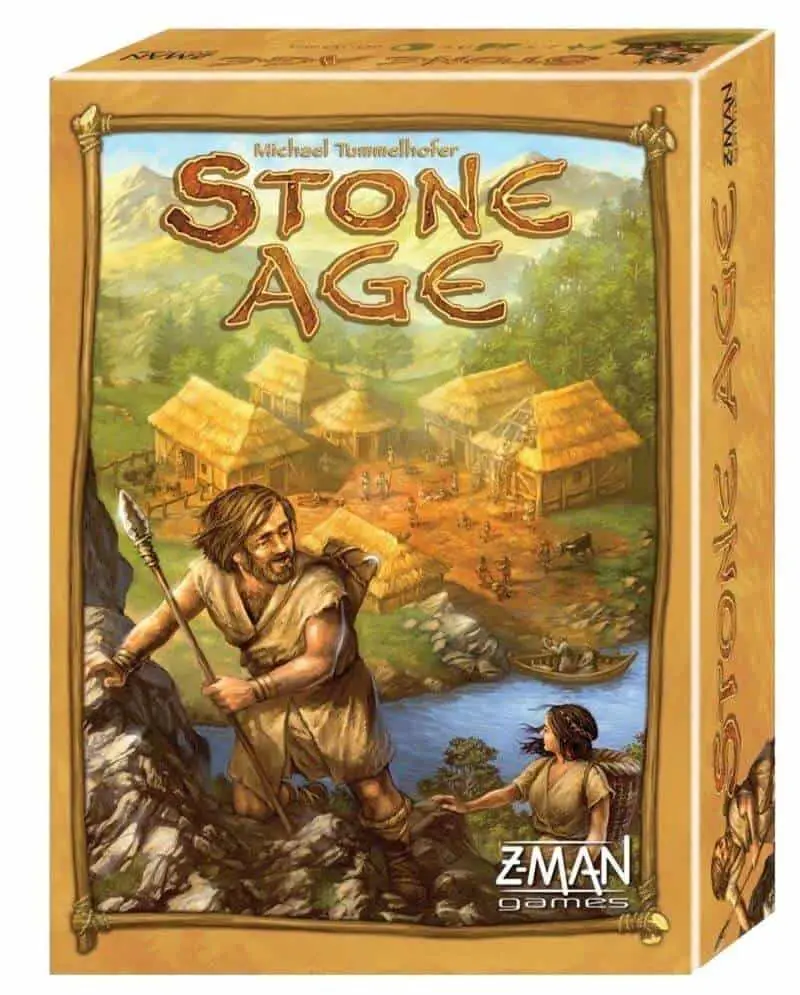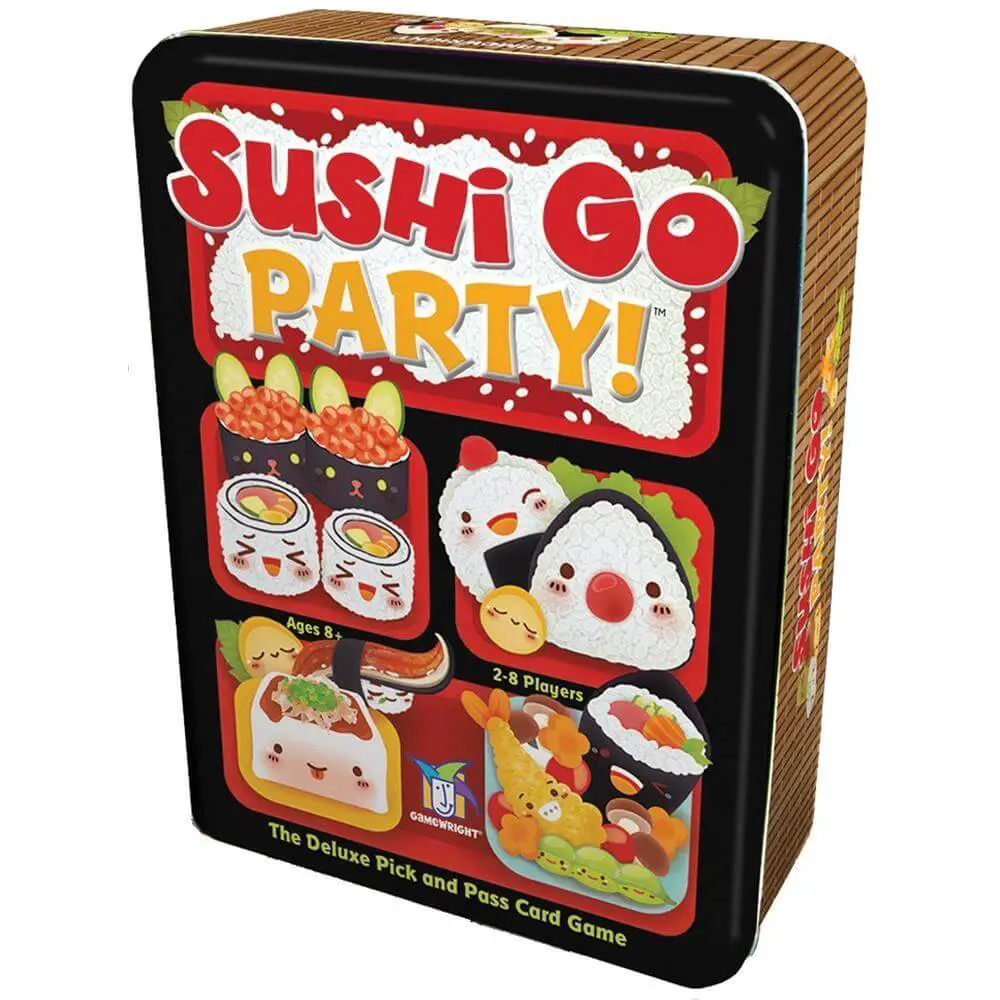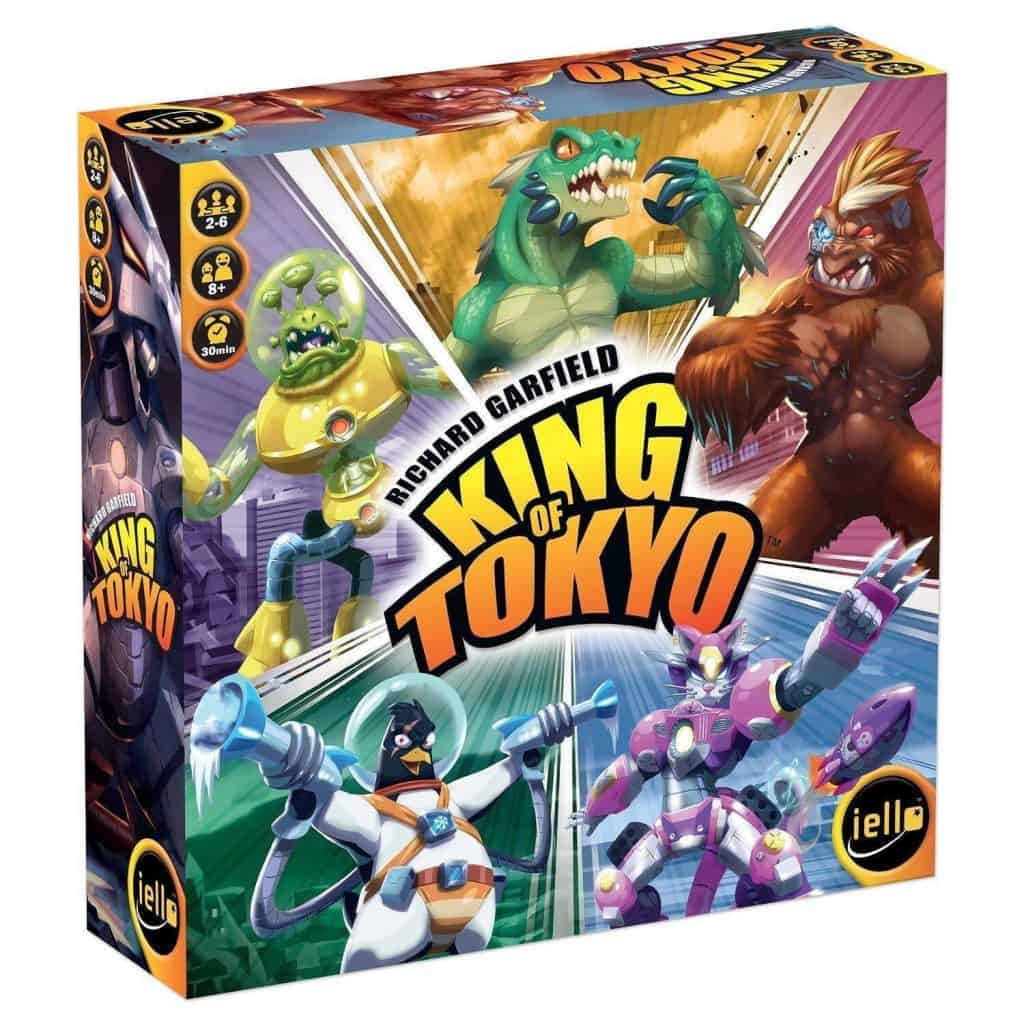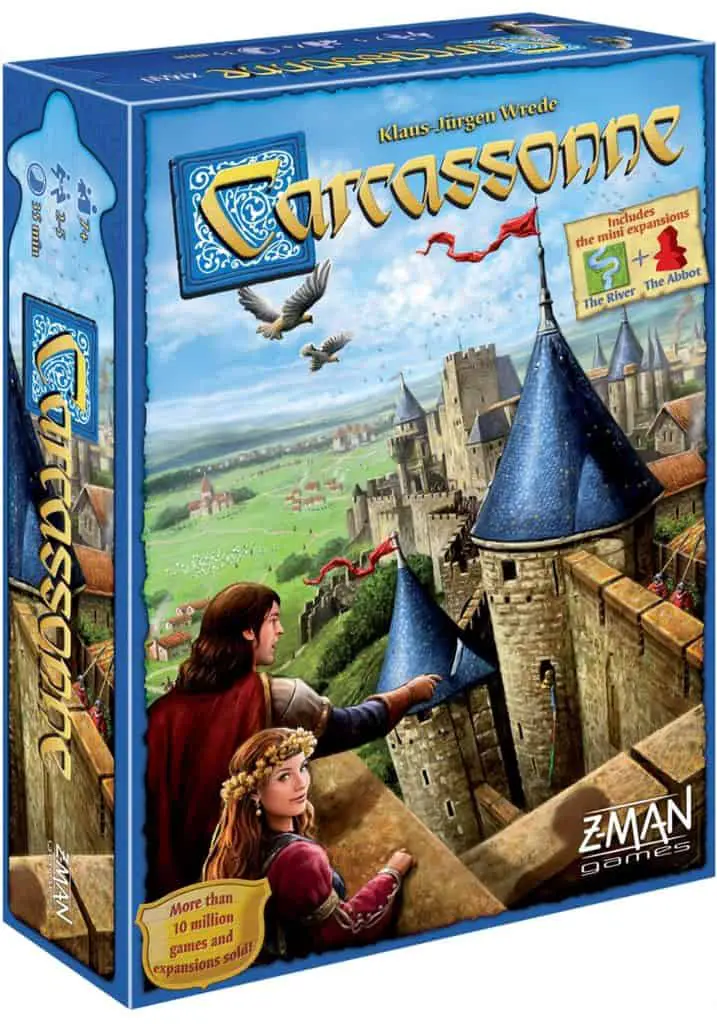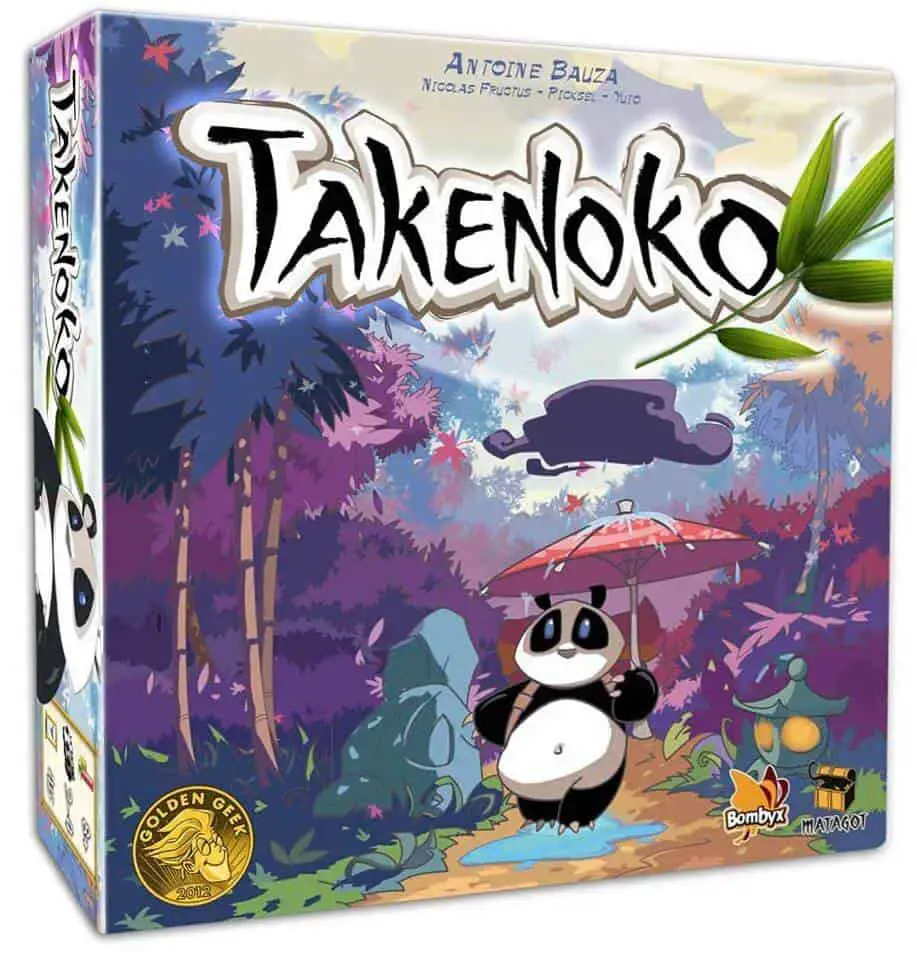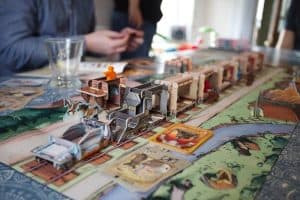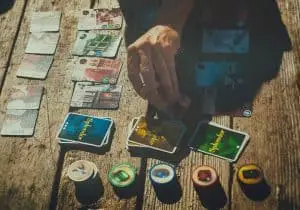Table of Contents
It was over 10 years ago now that I was introduced to the first game that would spark my passion for the hobby of tabletop gaming and introduce me to the possibilities of modern day board game mechanics – Catan.
Without that first game of Catan, I would be forever convinced that board games were made entirely of dice rolls, luck and piece moving along a set path (I’m looking at you Monopoly).
Catan was my gateway game. The game that changed everything and got me hooked. But what is a gateway board game?
What is a Gateway Board Game?
A gateway board game is a game that is incredibly fun to play and teaches the skills and mechanics of modern-day board games in an easy to understand and newbie friendly manner.
Effectively they are like gateway drugs. Introduce friends to a gateway game and they will be hooked. Soon they will move on to the harder stuff like a 4-hour long Gloomhaven bender!
In this article, I am going to go through what in my opinion are 10 of the best gateway board games available and why.
The Top 10 Best Gateway Board Games
1. Catan
2. Ticket to Ride
3. Pandemic
4. Dominion
5. Stone Age
6. 7 Wonders
7. Sushi Go!
8. King of Tokyo
9. Carcassone
10. Takenoko
1. Catan
Players: 3 – 4
Duration: 60mins – 120mins
Arguably, one of the best board games ever created, this game reserves a special spot in any board gamer’s heart.
The idea is to settle the isle of Catan. To do this, you will need strategy, cooperation, and a bit of luck. This game has great mechanics and interaction among players and there are over 143 ways to win the game.
Check out our article on why Catan is so popular here.
Pros:
- Simple enough for anyone to learn, both children and adults.
- Many expansion sets help to increase the difficulty and keep the fresh.
- Great interaction among players with trade function.
Cons:
- Can only play with 3 – 4 players. Need an expansion set to increase player count.
2. Ticket to Ride
Players: 2 – 5
Duration: 30mins – 60mins
If you are a bit of a nerd like me, you are going to love Ticket to Ride. It takes place in the year 1900, so there is a historical feel to the game.
The goal is to connect cities across the United States to gain points. The longer the routes, the more points you earn. The concept is simple enough for anyone from kids to adults to learn.
Once you master this particular version, you can add several other variations to your collection. Unfortunately, these are not expansion packs, so they are just additional standalone games.
Pros:
- Easy to learn rules.
- Great family game.
- Enough tension and action to keep all players involved through the duration of the game.
Cons:
- Many small pieces means if you lose any, the game cannot be played properly.
3. Pandemic
Players: 2 – 4
Duration: 45mins
Here is your chance to save the world! Pandemic is a cooperative game, meaning everyone either wins or loses together. This makes it perfect for being able to help teach a game without feeling like you are sacrificing your own game play at the same time. Played with 2-4 players, this game is great for a date night or a family game night.
Pros:
- Moderate length gameplay, usually lasting about 45 minutes.
- The basic gameplay can easily be picked up in about 10 minutes.
- While a cooperative game, it still allows players to have some individuality while playing.
Cons:
- It is very difficult to win, even playing with the easiest difficulty. Not something to play with someone who has a hard time not winning.
- Being the game is cooperative, the game can be “hijacked” by a dominating player.
4. Dominion
Players: 2 – 4
Duration: 30mins
Dominion is a deck building game, meaning the point of the game is to do exactly that, build your deck to be able to make the plays that will help you win.
You play as a monarch set on expanding your kingdom, bringing civility to the land and making it a more pleasant place to live.
The idea is to race against other players to get as much of the unclaimed land as possible while fending them off.
Players are able to bolster and protect their land using buildings, minions and castle upgrades.
There are over 25 Kingdom cards in the 500 card deck and only 10 are played in one game – meaning a huge variety and replay value.
Designed to for 2-4 players, it usually takes about 30 minutes for a single game.
Pros:
- Shorter gameplay, lasting around 30 minutes.
- Has a card sorter in the box to help manage the massive amount of cards.
- A near infinite number of gameplay options, depending on how you set it up.
- No need to buy “packs” of additional cards, like in Magic: The Gathering or other similar deck building games. Everything you need is contained in the box.
Cons:
- Takes up a large amount of room to play, so it is not as travel friendly.
5. Stone Age
Players: 2 – 4
Duration: 60mins – 90mins
Head back to the days before cell phones and computers, or even before electricity and the modern wheel.
In Stone Age, you work for simple survival. This is a worker placement board game, meaning your work to gather resources by placing your “workers” on a space and rolling a dice.
Use those resources to build things like huts, boats and more with the goal to achieve new levels of civilization.
The game is quick to learn and a typical game will last about 30 minutes.
Pros:
- Strong strategy element for anyone wanting a real thinking game.
- Game construction is good, with sturdy pieces.
Cons:
- Game is same each play through so need to mix up strategy for variation.
6. 7 Wonders
In 7 Wonders, you are transported back to ancient times where each player controls one of 7 great cities.
Your goal is to develop trade routes, gather resources, and amass a mighty army. Combine the right actions to build your score, and ultimately win the game.
7 Wonders is a card drafting game, meaning you pull cards from a hand being passed around. The idea is to put together the best possible hand for points while thwarting the other players. Strategy meets luck.
Pros:
- Easy rules to learn, the strategy is the challenge.
- Beautiful game cards.
- Expansion packs are available to change difficulty and increase game variation.
Cons:
- Best played with larger groups of players.
7. Sushi Go!
Players: 2 – 5
Duration: 15mins
You do not have to be a sushi lover to be good at or enjoy this game!
While the theme is cute, this is an incredibly good game to introduce people to the concept of card drafting games. The premise is simple, collect cards to create the highest value hand possible.
It combines a little luck with some strategy on how to “stick it” to the other players.
Pros:
- Extremely quick game, lasting only about 15 minutes for experienced players.
- Great for playing with kids who are just learning the concept of games, not many curveballs.
Cons:
- Very simple, not a lot of variation.
- Best with 3-5 players, despite being able to play with just two.
8. King of Tokyo
Players: 2 – 6
Duration: 30mins
If you have ever watched Godzilla, and thought it would be great fun to go stomping through Tokyo as a giant monster, then this would be the game for you.
King of Tokyo is a perfect gateway game for children (or the children at heart).
Designed for ages 8 and up, this game is best left for family game night.
The game play can be reduced to simple dice rolls. With the less experienced, it can seem fun for a while, as you watch their enthusiasm. For more experienced gamers, it lacks depth and any amount of real skill to win the game.
Pros:
- Comical to look at and image stomping through Tokyo.
- Great for kids.
- Quick playtime, usually lasting 10-30 minutes once you understand the rules.
- Very simple rules, easy for anyone to pick up quickly.
Cons:
- No depth, can be repetitive.
9. Carcassonne
Players: 2 – 5
Duration: 30mins – 45mins
Transport yourself to medieval France, and build a kingdom worth ruling.
Carcassonne is a tile placement game in which you build countryside around a fortified city, and then place followers on the tiles to gain points and impede your competitors.
Carcassonne can be played with 2-5 players, and is a quick game taking 30-45 minutes to play. Actual gameplay mechanics are easy to pick up and there is enough strategy to keep seasoned gamers entertained without scaring off any newbies.
Pros:
- Quick gameplay, usually lasting 30-45 minutes.
- Encourages a lot of interaction between players.
- Comes with two expansions to allow for additional variation and greater challenge.
Cons:
- Game tiles can easily move on some table surfaces, making it difficult to play.
- Scoring can be challenging, especially for those new to tile laying games.
10. Takenoko
Players: 2 – 4
Duration: 45mins
It is time to summon your inner gardener from ages past. In
Takenoko, you will work to care for a giant panda by taking care of the emperor’s bamboo plantation.
Players will need to cultivate land plots, keep them irrigated and choose to grow yellow, green or pink bamboo.
The player who manages their land plots the best and grows the most bamboo wins.
Takenodo is simple enough for kids to learn, and designed to help keep their attention.
And is a great family gateway board game.
Pros:
- Colorful and cute artwork, perfect for playing with kids.
- Simple and easy to learn.
- Perfect game length, usually around 45 minutes.
- Easy for beginners, including children, to pick up and learn.
Cons:
- A large part of the gameplay is based on luck.
- Can be a bit redundant for repeat plays, especially with experienced players.
- It is a bit simple and boring for a group of adults, even those just beginning.
Final Thoughts
So there you have it. A list of what I believe are the 10 best gateway board games.
Each of the games above are incredibly quick to learn and play and have an addictive quality about them that will have the players hooked in no time.
I have tried to pick games that I believe would appeal to all different types of gamers, from deck building games and cooperation games all the way to simple abstract childrens games with luck and an awesome theme.
I’m sure there is at least one game in this list that will appeal to you!

